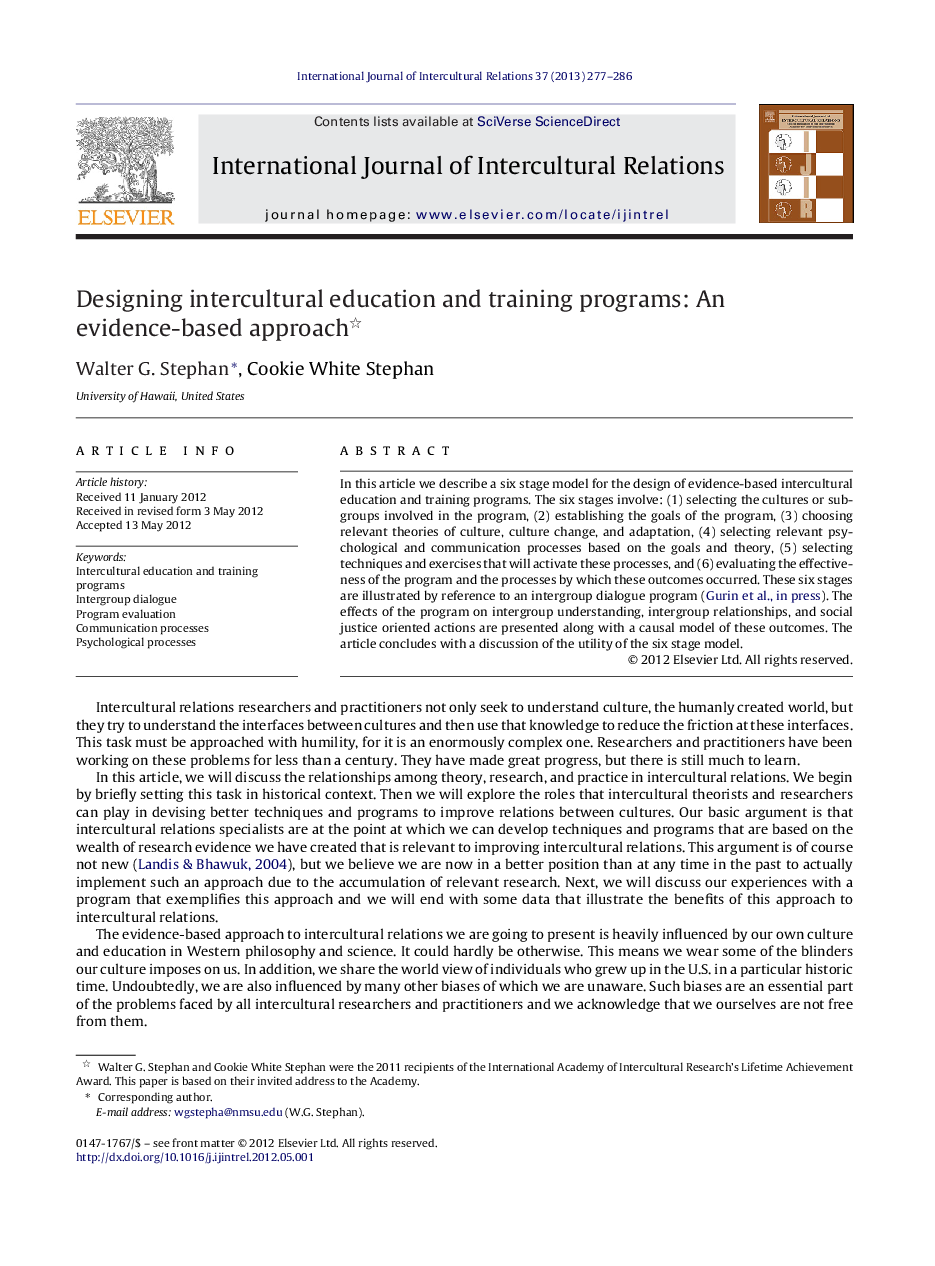| Article ID | Journal | Published Year | Pages | File Type |
|---|---|---|---|---|
| 947182 | International Journal of Intercultural Relations | 2013 | 10 Pages |
In this article we describe a six stage model for the design of evidence-based intercultural education and training programs. The six stages involve: (1) selecting the cultures or subgroups involved in the program, (2) establishing the goals of the program, (3) choosing relevant theories of culture, culture change, and adaptation, (4) selecting relevant psychological and communication processes based on the goals and theory, (5) selecting techniques and exercises that will activate these processes, and (6) evaluating the effectiveness of the program and the processes by which these outcomes occurred. These six stages are illustrated by reference to an intergroup dialogue program (Gurin et al., in press). The effects of the program on intergroup understanding, intergroup relationships, and social justice oriented actions are presented along with a causal model of these outcomes. The article concludes with a discussion of the utility of the six stage model.
► We recommend that the goals of intercultural education and training programs set the stage for their design. ► We recommend that the theoretical basis of intercultural education and training programs consist of theories of culture relevant to achieving these particular goals. ► We recommend that theory and research-based communication and psychological processes be the basis for selecting techniques employed in intercultural education and training programs. ► Intergroup dialogues improve intergroup understanding, intergroup relationships, and social justice related actions. ► In intergroup dialogues, the relationship of pedagogical and communication processes to the outcomes of the dialogues is mediated by cognitive and affective processes.
